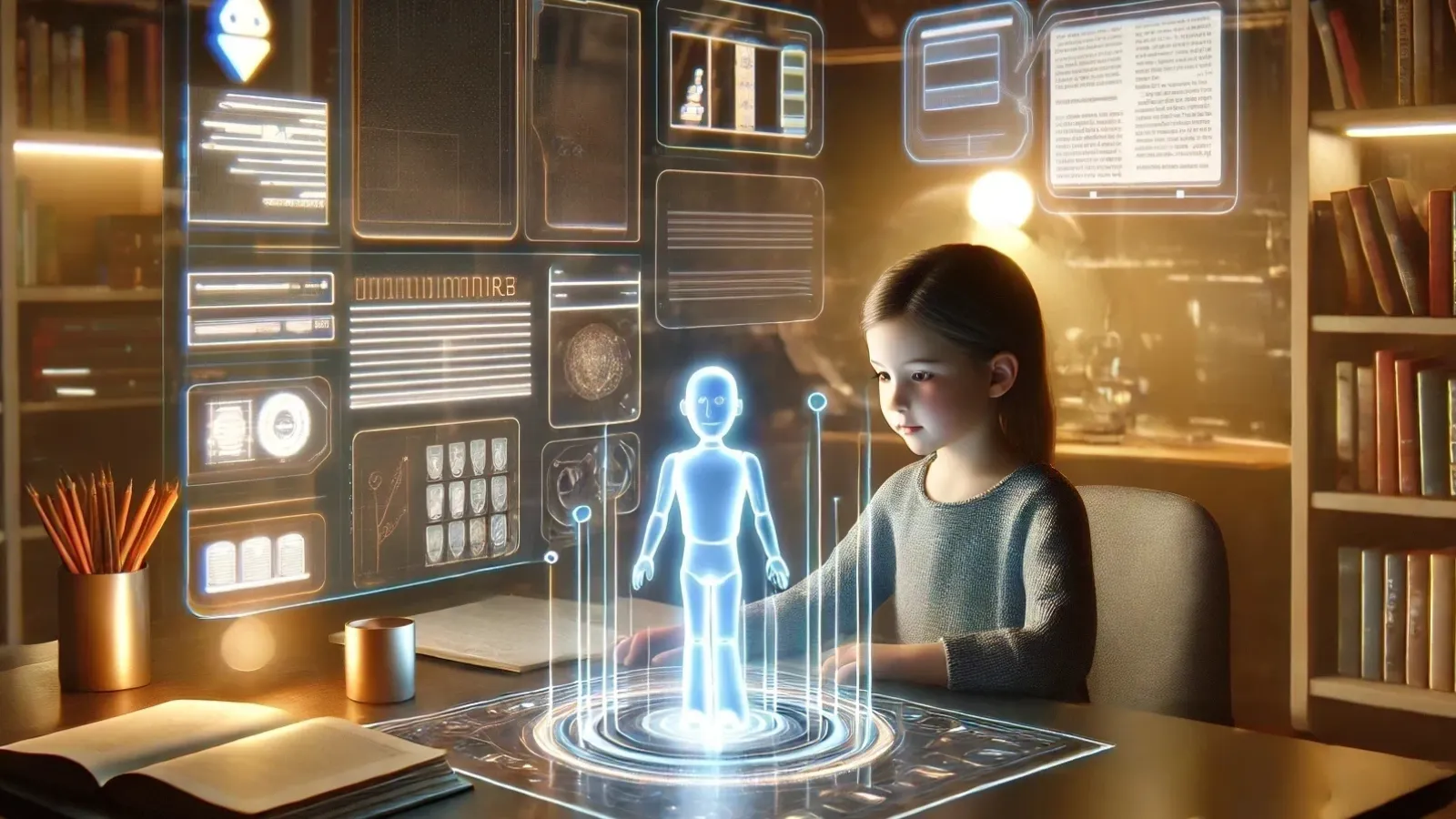When Generation Beta asks their first questions, AI will likely answer before their parents do.
Thanks to a proliferation of AI tools since the launch of ChatGPT, children born in 2025 and thereafter will live in a world where artificial intelligence shapes their knowledge, decisions, and relationships.
Coined by Australian futurist Mark McCrindle, Generation Beta refers to children born between 2025 and 2039. In a recent report, McCrindle said that the digital and physical worlds will be seamless for Generation Beta.
“While Generation Alpha has experienced the rise of smart technology and artificial intelligence, Generation Beta will live in an era where AI and automation are fully embedded in everyday life—from education and workplaces to healthcare and entertainment,” he said.
Unlike previous generations, who once did not have access to generative AI, Gen Beta enters a world where AI is not only everywhere but may soon approach the singularity.
Technological growth becomes uncontrollable and irreversible at this hypothetical future point, leading to drastic, unforeseeable changes in human civilization.
Some AI industry leaders, including OpenAI CEO Sam Altman and Dr. Ben Geortzel, speculate that this event is near and may occur within the next ten years.
“Generation Beta represents the dawn of a new era. They will grow up in a world shaped by breakthroughs in technology, evolving social norms, and an increasing focus on sustainability and global citizenship,” McCrindle said. “Understanding their needs, values, and preferences will be critical as we anticipate how they will shape the future of society.”
McCrindle did not immediately respond to a request for comments by Decrypt.
Since the launch of ChatGPT in 2022, educators and psychologists have debated how AI affects children.
On Sunday, a Redditor highlighted the growing dependence on artificial intelligence by lamenting their 11-year-old sister, who would be considered a member of Gen Alpha, had turned to ChatGPT to answer basic math questions that someone their age should have been able to answer independently.
Educators are already observing a shift as students increasingly depend on AI for learning and problem-solving.
"As an educator, I see students regularly turning to ChatGPT for advice and answers, and I’ve noticed friends and family doing the same," USC Associate Professor of Psychology Jonas Kaplan told Decrypt. “The challenge is that technology evolves faster than our educational institutions, which are designed to teach skills from the world we grew up in—not the one today’s kids will inherit."
The co-director of the Dornsife Neuroimaging Center at the Brain & Creativity Institute and the Department of Psychology at USC, Kaplan, said that an essential skill Gen Beta must develop is critical thinking.
“In past generations, we had to learn how to find information because it was scarce and difficult to source,” he said. “Now, current generations face a different challenge. They’re inundated with information and must decide what’s good and what isn’t. So there are different skills that are required that people need to learn as technology changes.”
Experts also warn that as AI becomes more ubiquitous, parents may delegate the responsibility of educating their children to artificial intelligence.
“Learning does not happen through access to information, it happens via knowledge, which is information taken in context and co-constructed with others,” Carnegie Mellon University Computer Science Professor Justine Cassell told Decrypt.
“AI as an oracle only spits out information. AI as a learning partner can help co-construct knowledge with children and even serve as a useful listener for children's socio-emotional development in an era when many parents are forced to work multiple jobs and don't have time to serve as listeners or when parents have their noses in their smartphones," she said.
"I think the trend will lean toward AI teaching children, and we need to prevent that,” Dr. Emily Levy told Decrypt. “While AI can teach hard skills like reading and math, we risk losing essential soft skills—interacting with others, creative problem-solving, and socializing. Over-reliance on AI could diminish these critical skills, which are key to relationships, career success, and personal growth. This trend may be inevitable, but it’s important to recognize and address it."
Levy is the founder and director of EBL Coaching, a New York-based educational center that offers academic support for students from preschool through adulthood, focusing on those with learning disabilities, ADHD, and dyslexia.
While AI will be commonplace for children born in Gen Beta, Levy cautions that differences in the quality of AI tools available to them could create educational disparities.
Kids with access to more advanced or accurate AI models may get better support, while those using less reliable systems could fall behind.
“There can definitely be disparities, as AI still makes errors and isn’t always accurate. It often depends on the data it pulls from,” Levy said. “Some systems are more advanced, so disparities will likely continue, and I believe they will always exist.”
Edited by Sebastian Sinclair

